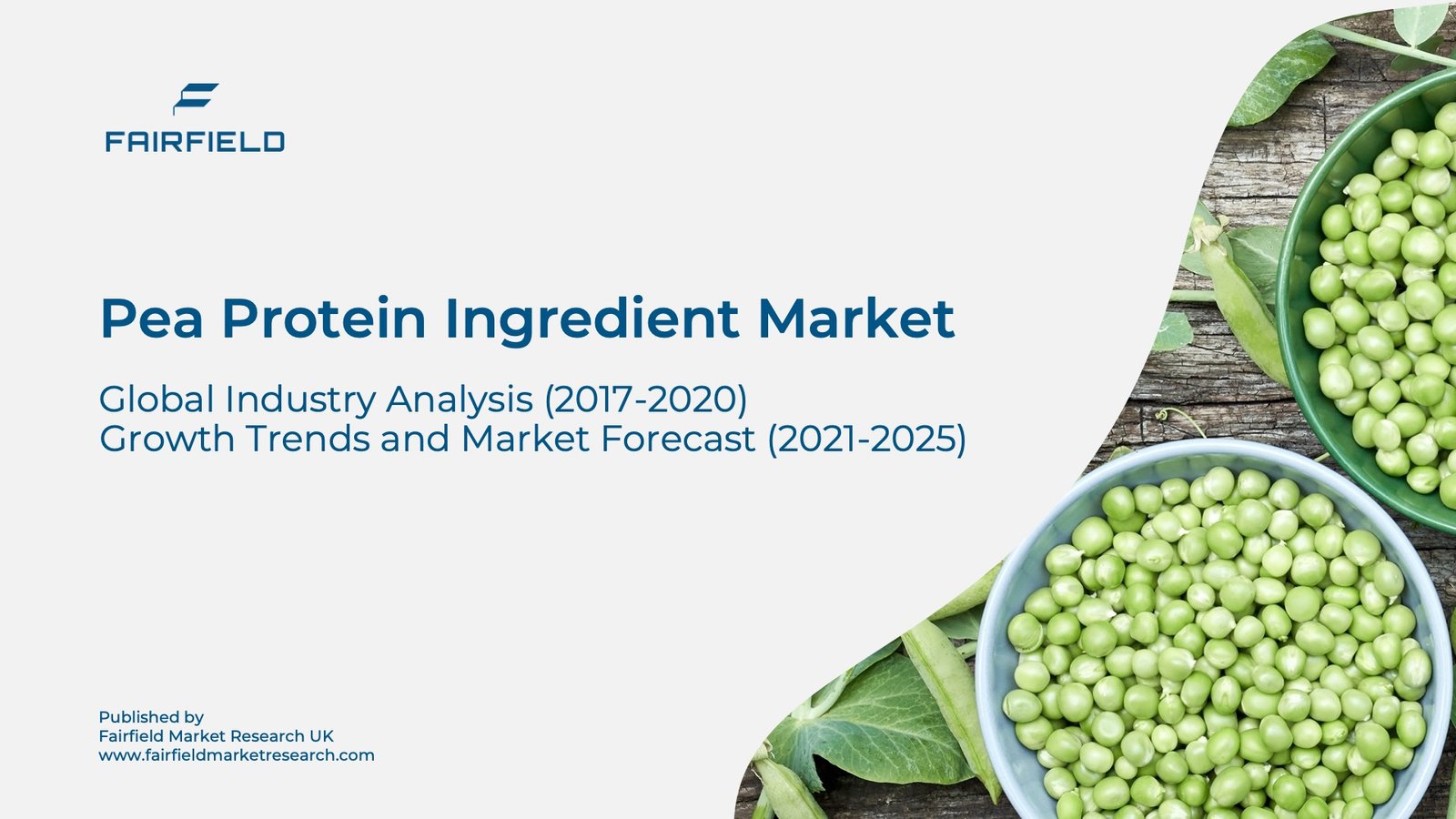Saturday, 17 January 2026
Plant-based food alternatives to boost global pea protein market at 8.4% CAGR
According to a report published by Fairfield Market Research, the global pea protein market is expected to reach US$1,374.3 Mn by 2025 The rising popularity of plant-based eating as an…

According to a report published by Fairfield Market Research, the global pea protein market is expected to reach US$1,374.3 Mn by 2025
The rising popularity of plant-based eating as an alternative protein source is flooding the market. Pea protein is amongst the most popular plant-based protein alternatives as it has a longer shelf life and easy-to-add appeal. It is increasingly making its way into numerous food items such as veg burgers, plant-based milk, supplements, shakes and protein powder. Pea protein market is merely a part of the booming non-dairy market as a whole. According to a report published by Fairfield Market Research, the global pea protein market is expected to reach US$1,374.3 Mn by 2025, registering a CAGR of 8.4% during the forecast period.
Influence of Healthy Lifestyle on Social Media will Bring Lucrative Opportunities for the Market
The rise in popularity of veganism, dietary supplements and flexitarian diet are the major accelerators for the growth of global pea protein market. The rising popularity of quitting meat and the influence of social media has had a huge impact on the growth of the market as people are increasingly becoming aware of the side effects of meat and dairy products. The enriched nutrients derived from alternative food choices are expanding the opportunities for the pea protein market.
Higher diagnosis of consumers facing meat allergies and lactose intolerance is moving them towards healthier food alternatives. Another factor boosting the market growth is the rise in number of diseases due to sedentary lifestyle. Doctors and dieticians are suggesting patients to quit unhealthy consumption of antibiotic-fed meat products and choose better alternatives thus, bolstering the demand for pea protein.
Disruption in the Supply Chain due to COVID-19 Likely Hamper Global Market
The global pea protein market is expected to face restraints due to COVID-19 that could likely hamper market growth. The global pandemic has led to lockdown in numerous regions of the world such as Asia Pacific, Europe and North America thus, hampering the food and beverage industry. Stringent government regulations on social distancing, shipping and limitation on trade will likely disrupt the supply chain and shortage of raw materials.
Enhanced Functionality will Likely Boost Conventional Pea Starch Segment
The conventional pea starch segment is expected to lead the global pea protein market as this segment accounted for the largest share value of 83.5% during 2020. The global pandemic has disrupted the supply chain hence, availability of raw materials became a crisis during the peak spread of COVID-19. This has bolstered the demand for conventional pea starch in the global market. Another factor accelerating the demand for conventional pea starch is its improved functionality and sustainability over other protein sources.
Major Production Hub in Developing Economies will Boost Market Growth in Asia Pacific
Asia Pacific is expected to witness growth in the global market as this region has emerging economies such as China, India and Japan who are the major contributors of pea protein production. This region is also expected to witness product launches from processed food manufacturers and quick-service restaurants. OmniPork is a plant-based pork producer in Asia Pacific who is expanding its base by launching its products across 210 stores in China.
New Launches will Keep Key Players Ahead in the Competition
The key players operating in the global pea protein market are adopting strategies such as mergers and acquisition to expand their product portfolio. They are collaborating with buyers from the food and beverage industry for developing non-GMO level ingredients to stay ahead in the competition.
Mainstream brands like Bolthouse Farms have jumped on the pea protein bandwagon as it delivers the desired taste, protein-minus the dairy and calcium to the consumers. Ripple Foods, a dairy-free milk company is exclusively producing pea milk. This company is focused on peas derivatives as it is more sustainable than almonds, uses less water and produce reduced CO2 emissions.
Emsland Group, in December 2019, launched its two new pea protein ingredients for food products such as desserts, ice cream, beverage and others. These two new protein isolates are designed to be a part of healthy and functional food products.
The other key players operating in the global pea protein market are Roquette Group, Ingredion Incorporated, PURIS, Emsland Group, Cosucra Groupe Warcoing SA, Axiom Foods, DuPont de Nemours, Inc, The Scoular Company, Burcon NutraScience Corporation and Glanbia plc.
Technology
Bringing PFAS testing to the point of need
Jan 16, 2026 | Australia
Study finds Magtein enhances memory, reaction time and heart health markers
Jan 15, 2026 | Company News
Walmart and Google turn AI discovery into effortless shopping experiences
Jan 15, 2026 | Company News
Food Testing
Bringing PFAS testing to the point of need
Jan 16, 2026 | Australia
IMCD opens a Food & Nutrition Laboratory in Cologne
Jan 08, 2026 | Company News
La Trobe University Develops Portable Biosensor to Detect PFAS in Water
Jan 08, 2026 | Australia
More Popular
Amar Pure Gold to invest Rs 250 Cr in Agro-Food Park in Himachal Pradesh
Jan 16, 2026 | Company News
Franke launches new A Line in Southeast Asia and opens regional flagship showroom in Singapore
Jan 16, 2026 | Beverages
EXBERRY plant-based colour supplier GNT earns top sustainability award
Jan 16, 2026 | Awards





